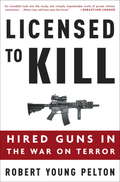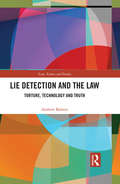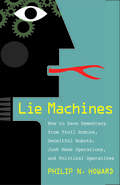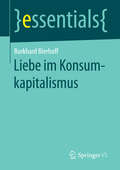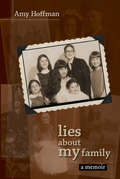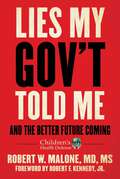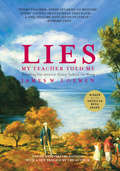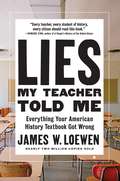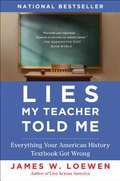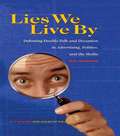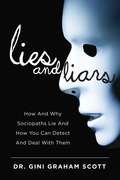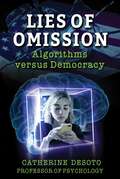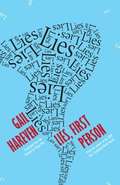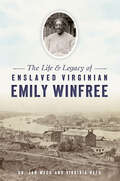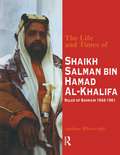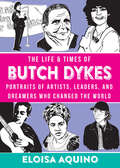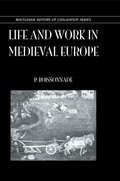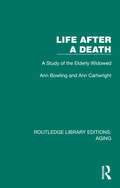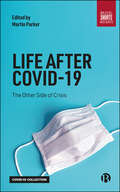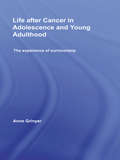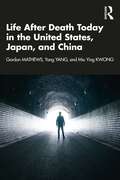- Table View
- List View
Licensed to Kill
by Robert Young PeltonRobert Young Pelton first became aware of the phenomenon of hired guns in the War on Terror when he met a covert team of contractors on the Afghanistan/Pakistan border in the fall of 2003. Pelton soon embarked on a globe-spanning odyssey to penetrate and understand this shadowy world, ultimately delivering stunning insights into the way private soldiers are used.Enter a blood-soaked world of South African mercenaries and tribal fighters backed by ruthless financiers. Drop into Baghdad's Green Zone, strap on body armor, and take a daily high-speed ride with a doomed crew of security contractors who dodge car bombs and snipers just to get their charges to the airport. Share a drink in a chic hotel bar with wealthy owners of private armies who debate the best way to stay alive in war zones.Licensed to Kill spans four continents and three years, taking us inside the CIA's dirty wars; the brutal contractor murders in Fallujah and the Alamo-like sieges in Najaf and Al Kut; the Deep South contractor training camps where ex-Special Operations soldiers and even small town cops learn the ropes; the contractor conventions where macho attendees swap bullet-punctuated tales and discuss upcoming gigs; and the grim Central African prison where contractors turned failed mercenaries pay a steep price.The United States has encouraged the use of the private sector in all facets of the War on Terror, placing contractors outside the bounds of functional legal constraints. With the shocking clarity that can come only from firsthand observation, Licensed to Kill painstakingly deconstructs the most controversial events and introduces the pivotal players. Most disturbingly, it shows that there are indeed thousands of contractors--with hundreds more being produced every month--who've been given a license to kill, their services available to the highest bidder.From the Hardcover edition.
Licensed to Kill: Hired Guns in the War on Terror
by Robert Young PeltonWhile it is not an entirely new phenomenon, a distinctive feature of the wars in Afghanistan and Iraq have been the number of military "private contractors" that have been employed by the Pentagon in order to carry out traditional military tasks such as protecting infrastructure and individuals. Investigative journalist Pelton offers a partial window into the world of the private contractor that focuses primarily on the men who carry the guns and there experiences in carrying out their duties. He tells the tales of the contractors that died in Fallujah in an event that set the stage for the later US assault on that Iraqi city, his own former bodyguard now serving time for involvement in an attempted coup in Equatorial Guinea, and the man accused of maintaining his own private prison in Afghanistan (who claims that he was acting on behalf of the Central Intelligence Agency), among other guns-for-hire in the "War on Terror. " Annotation ©2007 Book News, Inc. , Portland, OR (booknews. com)
Lie Detection and the Law: Torture, Technology and Truth (Law, Science and Society)
by Andrew BalmerThis book develops a sociological account of lie detection practices and uses this to think about lying more generally. Bringing together insights from sociology, social history, socio-legal studies and science and technology studies (STS), it explores how torture and technology have been used to try to discern the truth. It examines a variety of socio-legal practices, including trial by ordeal in Europe, the American criminal jury trial, police interrogations using the polygraph machine, and the post-conviction management of sex offenders in the USA and the UK. Moving across these different contexts, it articulates how uncertainties in the use of lie detection technologies are managed, and the complex roles they play in legal spaces. Alongside this story, the book surveys some of the different ways in which lying is understood in philosophy, law and social order. Lie Detection and the Law will be of interest to STS researchers, socio-legal scholars, criminologists and sociologists, as well as others working at the intersections of law and science.
Lie Machines: How to Save Democracy from Troll Armies, Deceitful Robots, Junk News Operations, and Political Operatives
by Philip N. HowardTechnology is breaking politics—what can be done about it? Artificially intelligent &“bot&” accounts attack politicians and public figures on social media. Conspiracy theorists publish junk news sites to promote their outlandish beliefs. Campaigners create fake dating profiles to attract young voters. We live in a world of technologies that misdirect our attention, poison our political conversations, and jeopardize our democracies. With massive amounts of social media and public polling data, and in-depth interviews with political consultants, bot writers, and journalists, Philip N. Howard offers ways to take these &“lie machines&” apart. Lie Machines is full of riveting behind-the-scenes stories from the world&’s biggest and most damagingly successful misinformation initiatives—including those used in Brexit and U.S. elections. Howard not only shows how these campaigns evolved from older propaganda operations but also exposes their new powers, gives us insight into their effectiveness, and explains how to shut them down.
Liebe im Konsumkapitalismus (essentials)
by Burkhard BierhoffBurkhard Bierhoff geht in diesem essential von der These aus, dass der Konsumkapitalismus die sexuelle Revolution der 1960er Jahre vollendet hat, indem er die Liebe hinter dem Konsum zum Verschwinden brachte und die Liebe als Konsum vereinseitigte. Der Autor stellt dar, dass die konsumistische F#65533;gsamkeit, die sich in Nacktdating-Shows und Pornografie genauso wie im Swinging und Speeddating zeigt, ein Angriff auf die befreiende Kraft der Liebe ist. Der durch die allgemeine Kommodifizierung nicht erstickbare Kern der Liebe k#65533;nnte zum Ausgangspunkt einer neuen Revolution der Liebe werden.
Liebe ohne Ende: Liebesbiografische Erzählungen vom Leben
by Jo Reichertz Andrea Kleeberg-Niepage Johanna L. DegenIst Liebe romantisch und hält ein Leben lang oder ist sie ein fragiles, potenziell toxisches Konstrukt? Lässt sich Liebe als neurochemischer Prozess (Biologie), als marktkonforme Idee (Soziologie) oder als Möglichkeit zur Erweiterung des Selbst (Psychologie) verstehen? Und wie leben Menschen mit der Liebe, welche Bedeutung hat oder gibt sie ihrem Leben, welche Vorstellungen, Träume aber auch Ängste verbinden sie mit ihr? Anhand von biografischen Interviews mit Menschen aus verschiedenen Altersgruppen, Milieus und sexuellen Orientierungen fragt dieses Buch nach der Bedeutung der Liebe im Leben und danach, ob sich die Vorstellung von Liebe in den letzten Jahrzehnten wesentlich verändert hat. Deutlich wird dabei die zentrale Kraft der Liebe im Leben, die jenseits medial geglätteter Idealisierungen antreibt, hart erarbeitet oder unerreichbar ist, Leiden und Verzweiflung, aber auch Erfüllung und Sinn zu bringen vermag. Die Liebesbiografien bieten tiefe Einblicke in das subjektive Erleben von Liebe, begleitende interdisziplinäre Einordnungen differenzieren und ergänzen aktuelle Theoretisierungen von Liebe.
Lies About My Family: A Memoir
by Amy HoffmanThis well-crafted family memoir is about the stories that are told and the ones that are not told, and about the ways the meanings of the stories change down the generations. It is about memory and the spaces between memories, and about alienation and reconciliation. All of Amy Hoffman's grandparents came to the United States during the early twentieth century from areas in Poland and Russia that are now Belarus and Ukraine. Like millions of immigrants, they left their homes because of hopeless poverty, looking for better lives or at the least a chance of survival. Because of the luck, hard work, and resourcefulness of the earlier generations, Hoffman and her five siblings grew up in a middle-class home, healthy, well fed, and well educated. An American success story? Not quite--or at least not quite the standard version. Hoffman's research in the Ellis Island archives along with interviews with family members reveal that the real lives of these relatives were far more complicated and interesting than their documents might suggest. Hoffman and her siblings grew up as observant Jews in a heavily Catholic New Jersey suburb, as political progressives in a town full of Republicans, as readers in a school full of football players and their fans. As a young lesbian, she distanced herself from her parents, who didn't understand her choice, and from the Jewish community, with its organization around family and unquestioning Zionism. However, both she and her parents changed and evolved, and by the end of this engaging narrative, they have come to new understandings, of themselves and one another.
Lies My Gov't Told Me: And the Better Future Coming (Children’s Health Defense)
by Robert W. Malone**AS SEEN ON TUCKER CARLSON TODAY AND THE JOE ROGAN EXPERIENCE**A guide for the times—breaking down the lies about COVID-19 and shedding light on why we came to believe them. When he invented the original mRNA vaccine technology as a medical and graduate student in the late 1980s, Robert Malone could not have imagined that he would become a leader in a movement to expose the dangers of mRNA vaccines that billions of people have received—too often without being informed of the risks. For voicing opposition to the &“mainstream&” narrative, Dr. Robert Malone was censored by Big Tech and vilified by the media. But he continues to speak out and alert the world to the web of lies that we have all experienced. From vaccine safety and effectiveness to early treatments like ivermectin, to lockdowns, masks, and more, Dr. Malone is the signature dissident voice telling the other side of the story about COVID, the role of corporate media, censorship, propaganda, and the brave new world of transhumanism promoted by the World Economic Forum and its acolytes. What effect did the COVID policies have on lives, livelihoods, and democracies? How is it possible that the lies spread by governments would persist, and that our institutions would fail to correct them? Lies My Gov&’t Told Me takes a hard look at these questions and illustrates how data, information, and psychology have been distorted during the pandemic. Governments intentionally weaponized fear to mold behavior. The media smeared anyone who objected to the narrative. And Big Pharma—aligned with larger globalist interests exemplified by the likes of Bill Gates and the World Economic Forum—had captured the agencies that are supposed to regulate it long before the pandemic began. Dr. Malone explores these perverse connections between Pharma, government, and media, and tells us what can be done about it. With contributed chapters from other leading thinkers, such as Dr. Paul Marik and Professor Mattias Desmet, and drawing upon history, psychology, and economics, Lies My Gov&’t Told Me looks at COVID from numerous angles. Never satisfied with a simple answer or easy solution, Dr. Malone proposes multiple action plans for a better future. Dr. Malone calls on each of us to find our own solutions, our own ways to resist the control of fascist, corporatist, and totalitarian overlords. If we are to step out of the darkness—toward a world that defends the principles of the Constitution, upholds individual rights, and honors free speech—we all must play a part in the transition.
Lies My Teacher Told Me
by James W. Loewen<P>Since its first publication in 1995, Lies My Teacher Told Me has gone on to win an American Book Award, the Oliver Cromwell Cox Award for Distinguished Anti-Racist Scholarship, and to sell over half a million copies in its various editions. <P>What started out as a survey of the twelve leading American history textbooks has ended up being what the San Francisco Chronicle calls "an extremely convincing plea for truth in education." In Lies My Teacher Told Me, James W. Loewen brings history alive in all its complexity and ambiguity. Beginning with pre-Columbian history and ranging over characters and events as diverse as Reconstruction, Helen Keller, the first Thanksgiving, and the Mai Lai massacre, Loewen offers an eye-opening critique of existing textbooks, and a wonderful retelling of American history as it should-and could-be taught to American students. <P>This 10th anniversary edition features a handsome new cover and a new introduction by the author.
Lies My Teacher Told Me
by James W. Loewen<P>Since its first publication in 1995, Lies My Teacher Told Me has gone on to win an American Book Award, the Oliver Cromwell Cox Award for Distinguished Anti-Racist Scholarship, and to sell over half a million copies in its various editions. What started out as a survey of the twelve leading American history textbooks has ended up being what the San Francisco Chronicle calls "an extremely convincing plea for truth in education." In Lies My Teacher Told Me, James W. Loewen brings history alive in all its complexity and ambiguity. Beginning with pre-Columbian history and ranging over characters and events as diverse as Reconstruction, Helen Keller, the first Thanksgiving, and the Mai Lai massacre, Loewen offers an eye-opening critique of existing textbooks, and a wonderful retelling of American history as it should-and could-be taught to American students.This 10th anniversary edition features a handsome new cover and a new introduction by the author.
Lies My Teacher Told Me: Everything Your American History Textbook Got Wrong
by James W. LoewenSince its first publication in 1995, Lies My Teacher Told Me has gone on to win an American Book Award, the Oliver Cromwell Cox Award for Distinguished Anti-Racist Scholarship, and to sell over half a million copies in its various editions.What started out as a survey of the twelve leading American history textbooks has ended up being what the San Francisco Chronicle calls "an extremely convincing plea for truth in education." In Lies My Teacher Told Me, James W. Loewen brings history alive in all its complexity and ambiguity. Beginning with pre-Columbian history and ranging over characters and events as diverse as Reconstruction, Helen Keller, the first Thanksgiving, and the Mai Lai massacre, Loewen offers an eye-opening critique of existing textbooks, and a wonderful retelling of American history as it should-and could-be taught to American students.This 10th anniversary edition features a handsome new cover and a new introduction by the author.
Lies My Teacher Told Me: Everything Your American History Textbook Got Wrong
by James W. LoewenSince its first publication in 1995, Lies My Teacher Told Me has become one of the most important - and successful - history books of our time. Having sold over two million copies, the book also won an American Book Award and the Oliver Cromwell Cox Award for Distinguished Anti-Racist Scholarship and was heralded on the front page of the New York Times in the summer of 2006. For this new edition, Loewen has added a new introduction that shows how inadequate history courses in high school help produce adult Americans who think Donald Trump can solve their problems.
Lies My Teacher Told Me: Everything Your American History Textbook Got Wrong (2nd edition)
by James W. LoewenWinner of the American Book Award and the Oliver C. Cox Anti-Racism Award of The American Sociological Association. Americans have lost touch with their history, and in "Lies My Teacher Told Me", Professor James Loewen shows why. After surveying eighteen leading high school American history texts, he has concluded that not one does a decent job of making history interesting or memorable. Marred by an embarrassing combination of blind patriotism, mindless optimism, sheer misinformation, and outright lies, these books omit almost all the ambiguity, passion, conflict, and drama from our past. In this revised edition (with updated material) Loewen explores how historical myths continue to be perpetuated in today's climate and adds an eye-opening chapter on the lies surrounding 9/11 and the Iraq War. From the truth about Columbus's historic voyages to an honest evaluation of our national leaders, Loewen revives our history, restoring the vitality and relevance it truly possesses. Thought provoking, nonpartisan, and often shocking, Loewen unveils the real America in this iconoclastic classic beloved by high school teachers, history buffs, and enlightened citizens across the country.
Lies We Live By: Defeating Doubletalk and Deception in Advertising, Politics, and the Media
by Carl HausmanFirst Published in 2000. Routledge is an imprint of Taylor & Francis, an informa company.
Lies and Liars: How and Why Sociopaths Lie and How You Can Detect and Deal with Them
by Gini Graham ScottApproximately 12 million Americans, or one in twenty-five, are sociopaths. But what does this statistic mean? What exactly is a sociopath? What do they do to be labeled as such? And how many people are affected by them? While everyday lying has become acceptable and even socially necessary, it is often difficult to discover when someone is manipulating you through lies or other actions. Since a sociopath has no conscience, he or she feels no remorse about piling lie on top of lie until, eventually, the façade comes crashing down and he or she is exposed.When Dr. Scott was warned about a film producer she had hired, she confronted the woman, only to be fed explanations and excuses. Eventually, Scott found that she had been the victim of this sociopath for five years, along with many others. In this book, she delves into medical research on sociopaths as well as interviews with sociopaths and victims alike to provide a comprehensive picture of this mental disorder. Lies and Liars also includes information about:The types of lies told by sociopaths in different situationsThe relationships between sociopaths and victimsRecognizing when someone is lyingHow to deal with a suspected or discovered sociopathic liarThe odds are very high that you know a sociopath already, so figure out what signs to look for to prevent yourself or your loved ones being manipulated or harmed.
Lies of Omission: Algorithms versus Democracy
by Catherine DeSotoA lie of omission—withholding needed information to correct a false belief. There is a sharp and more hostile divide emerging in the United States. The shift is documented by various polls, and the speed of the change is alarming. There are certainly contributing factors, but one factor is unique to the contemporary era: receiving the majority of our information via social media experiences. Media algorithms, and to some extent overt censorship, serve users curated content that is unlike what their neighbors receive.Lies of Omission brings together various perspectives on the causes and effects of the divided information streams. Psychology and neuroscience, combined with some historical jurisprudence, are woven together to spell out the dangers of the modern social media experience. Importantly, the human response can be understood as rooted in our psychology and neurochemistry. In part two of the book, eight hot button issues that have provoked deep divisions among American citizens are presented as well-researched, opposing-view chapters with a goal to lay bare the extent of the disinformation gap that we are living in. With the rise of ephemeral smart media, and the associated displacement of the permanently printed word, it is rare to have a clear idea of what persons who do not share our opinions actually believe, or why.The decimation of communal information sources is nearly complete. What can one do? One concrete step is to turn some of your attention away from curated, impermanent news and read a book. Read this book. Dr. Catherine DeSoto spells out why it is worth our time to be informed regarding the issues we care about: something your phone&’s curated media will never do for you. Open your mind to the quaint idea that one is not informed unless one understands the opposing view. Surprising all-new research regarding the political divide and the pandemic is included. Together with over 150 references, this book will be the definitive source documenting the effects of the media algorithm revolution.
Lies, First Person
by Dalya Bilu Gail HarevenFrom the 2010 winner of the Best Translated Book Award comes a harrowing, controversial novel about a woman's revenge, Jewish identity, and how to talk about Adolf Hitler in today's world.Elinor's comfortable life--popular newspaper column, stable marriage, well-adjusted kids--is totally upended when she finds out that her estranged uncle is coming to Jerusalem to give a speech asking forgiveness for his decades-old book, Hitler, First Person.A shocking novel that galvanized the Jewish diaspora, Hitler, First Person was Aaron Gotthilf's attempt to understand--and explain--what it would have been like to be Hitler. As if that wasn't disturbing enough, while writing this controversial novel, Gotthilf stayed in Elinor's parent's house and sexually assaulted her "slow" sister.In the time leading up to Gotthilf's visit, Elinor will relive the reprehensible events of that time so long ago, over and over, compulsively, while building up the courage--and plan--to avenge her sister in the most conclusive way possible: by murdering Gotthilf, her own personal Hilter.Along the way to the inevitable confrontation, Gail Hareven uses an obsessive, circular writing style to raise questions about Elinor's mental state, which in turn makes the reader question the veracity of the supposed memoir that they're reading. Is it possible that Elinor is following in her uncle's writerly footpaths, using a first-person narrative to manipulate the reader into forgiving a horrific crime?Gail Hareven is the author of eleven novels, including The Confessions of Noa Weber, which won both the Sapir Prize for Literature and the Best Translated Book Award.Dalya Bilu is the translator of A.B. Yehoshua, Aharon Appelfeld, and many others.
Life & Legacy of Enslaved Virginian Emily Winfree, The (American Heritage)
by Dr. Jan Meck Virginia RefoLeft destitute after the Civil War by the death of David Winfree, her former master and the father of her children, Emily Winfree underwent unimaginable hardships to keep her family together. Living with them in the tiny cottage he had given her, she worked menial jobs to make ends meet until the children were old enough to contribute. Her sacrifices enabled the successes of many of her descendants. Authors Jan Meck and Virginia Refo tell the true story of this remarkable African American woman who lived through enslavement, war, Reconstruction and Jim Crow in Central Virginia. The book is enriched with copies of many original documents, as well as personal recollections from a great-granddaughter of Emily's. The story concludes with pictures and biographies of some of her descendants.
Life & Times Of Shaikh (English: Ruler of Bahrain 1942-1961
by WheatcroftFirst published in 1995. Routledge is an imprint of Taylor & Francis, an informa company.
Life & Times of Butch Dykes, The: Portraits of Artists, Leaders, and Dreamers Who Changed The World
by Eloisa AquinoPortraits of women throughout history who have defied society's expectations of feminine behavior and appearance in order to live a more authentic life. These short vignettes combine biographical sketches with evocative illustrations for an impact that is as bold, powerful, and inspirational as the brilliant artists, writers, and musicians they represent. The notable people profiled in this book include Audre Lorde (activist and poet), JD Sampson (artist, and musician known for Le Tigre and MAN), Jenny Shimizu (model and actress), Claude Cahun (photographer, performer, and writer who defied all gender expectations and wasn't any gender), Esther Eng (director), Gladys Bentley (singer and performer), Gertrude Stein (author and poet), Martina Navratilova (tennis champion), and Gloria Anzaldúa (scholar). Author and artist Eloisa Aquino presents these icons against heteronormativity in a good-humored homage, showing how the courage to be true to yourself can spark the sort of work that changes the world.
Life & Work In Medieval Europe (The\history Of Civilization Ser.)
by Boissonnade"First Published in 2005, Routledge is an imprint of Taylor & Francis, an informa company."
Life After A Death: A Study of the Elderly Widowed (Routledge Library Editions: Aging)
by Ann Cartwright Ann BowlingThe recently widowed experience many complex problems, and an understanding of their needs and the kinds of difficulties they encounter is essential if appropriate services and help are to be mobilized. It is the old who are most likely to be widowed, and they may face this crisis at a time when they may also be adjusting to ill health and increasing infirmity, and to retirement, with its problems of role identification and adaptation to an increase in leisure and a decrease in wealth. Most will have to learn to live alone, or to uproot themselves from their home and adjust to life with relatives. Often, the elderly person will have been involved in caring for their spouse during his or her terminal illness; widowhood will mean that they have lost their main occupation. For some, who are themselves disabled, widowhood may mean that they have lost the person who cared for them, so that there is an immediate crisis as alternative sources of care need to be found. These problems have to be faced in a situation often complicated by the anxiety, loneliness, apathy, and bewilderment of bereavement.Originally published in 1982, Life After A Death presents the results of a study of the experiences and attitudes of over 350 elderly widowed men and women, their general practitioners, and their relatives, friends, and neighbours, and considers the implications of the help the widowed received, or failed to receive, from those to whom it was most likely that they would turn for support. The authors’ identification and description of the emotional and practical day-to-day needs of the widowed, and their recommendations about the potential role of the general practitioner and voluntary and social services, should be considered by all those concerned to alleviate the difficulties of the widowed, and to help them to live a better ‘life after a death’.
Life After COVID-19: The Other Side of Crisis
by Martin ParkerWhat might the world look like in the aftermath of COVID-19? Almost every aspect of society will change after the pandemic, but if we learn lessons then life can be better. Featuring expert authors from across academia and civil society, this book offers ideas that might put us on alternative paths for positive social change. A rapid intervention into current commentary and debate, Life After COVID-19 looks at a wide range of topical issues including the state, co-operation, work, money, travel and care. It invites us to see the pandemic as a dress rehearsal for the larger problem of climate change, and it provides an opportunity to think about what we can improve and how rapidly we can make changes.
Life After Cancer in Adolescence and Young Adulthood: The Experience of Survivorship
by Anne GrinyerAdolescence and young adulthood is often a difficult enough time without serious illness. However, research has shown that cancer, and surviving cancer, at this age presents distinctive problems medically, socially and psychologically. This important work offers a glimpse into a previously under-researched area and contributes to a better understanding of the needs of young adults post cancer. Focusing not only on the physical effects, but also the social, cognitive, emotional and physiological consequences of surviving cancer in young adulthood, Anne Grinyer draws directly upon data collected from young adults who have been treated for cancer. The book is structured around themes they raised such as fertility; life plans; identity; psychological effects and physical effects. These issues are drawn together in the final chapter and related to clinical and professional practice as well as current policy. This book presents the voices of those who have lived through the experience of cancer in young adulthood, and links them to the theoretical and analytical literature. It will be of interest to professionals and researchers in nursing, social work, counselling and medicine as well as medical sociologists, young adults living with cancer and survivors of young adult cancer.
Life After Death Today in the United States, Japan, and China
by Yang Yang Gordon Mathews Miu Ying KwongThis book is about contemporary senses of life after death in the United States, Japan, and China. By collecting and examining hundreds of interviews with people from all walks of life in these three societies, the book presents and compares personally held beliefs, experiences, and interactions with the concept of life after death. Three major aspects covered by the book Include, but are certainly not limited to, the enduring tradition of Japanese ancestor veneration, China’s transition from state-sponsored materialism to the increasing belief in some form of afterlife, as well as the diversity in senses of, or disbelief in, life after death in the United States. Through these diverse first-hand testimonies the book reveals that underlying these changes in each society there is a shift from collective to individual belief, with people developing their own visions of what may, or may not, happen after death. This book will be valuable reading for students of Anthropology as well as Religious, Cultural, Asian and American Studies. It will also be an impactful resource for professionals such as doctors, nurses, and hospice workers.
